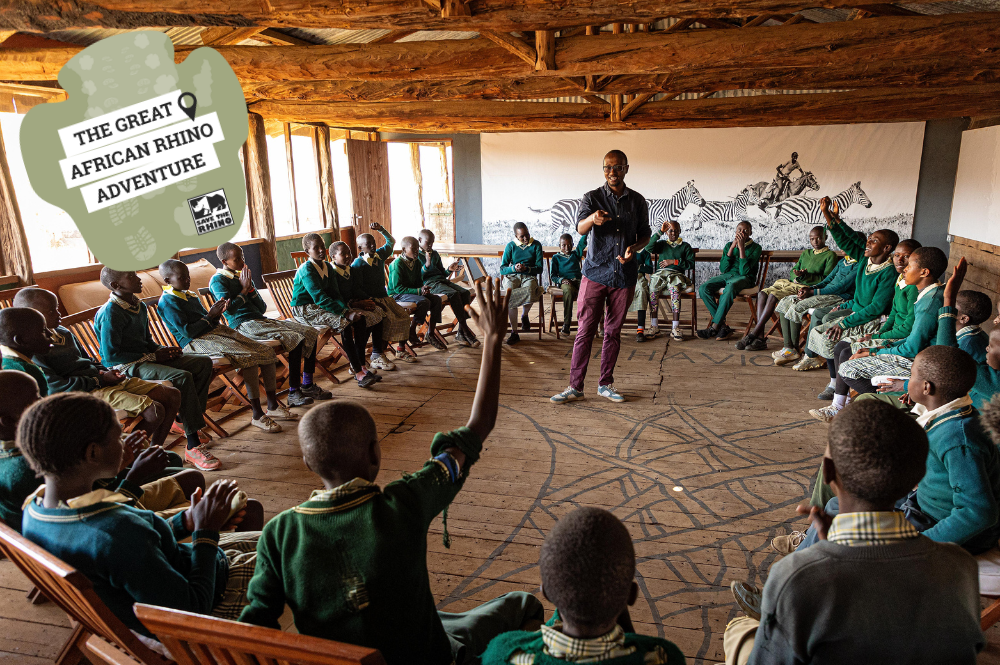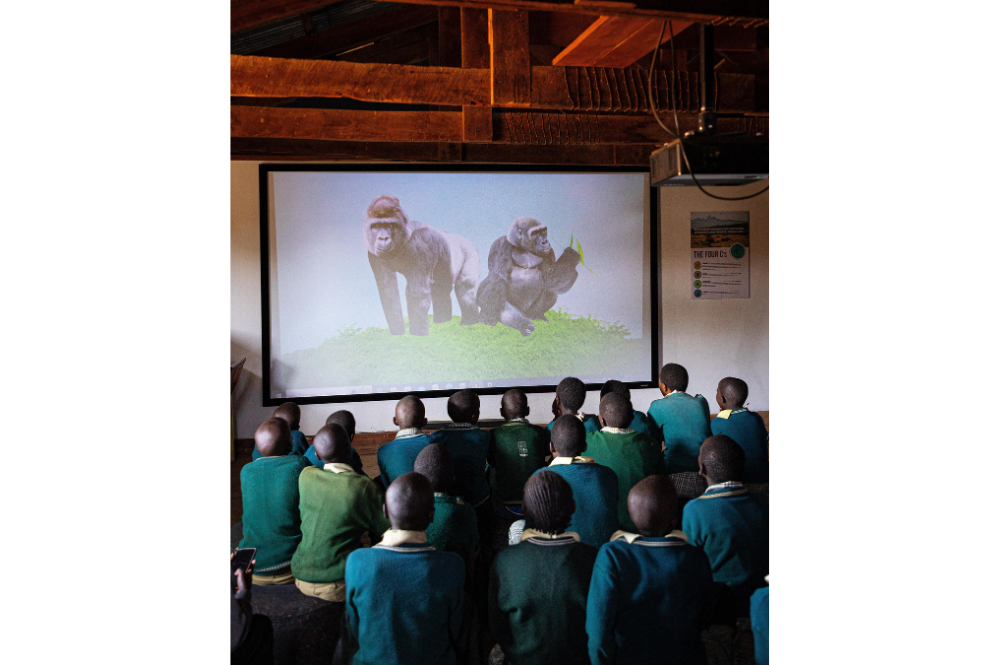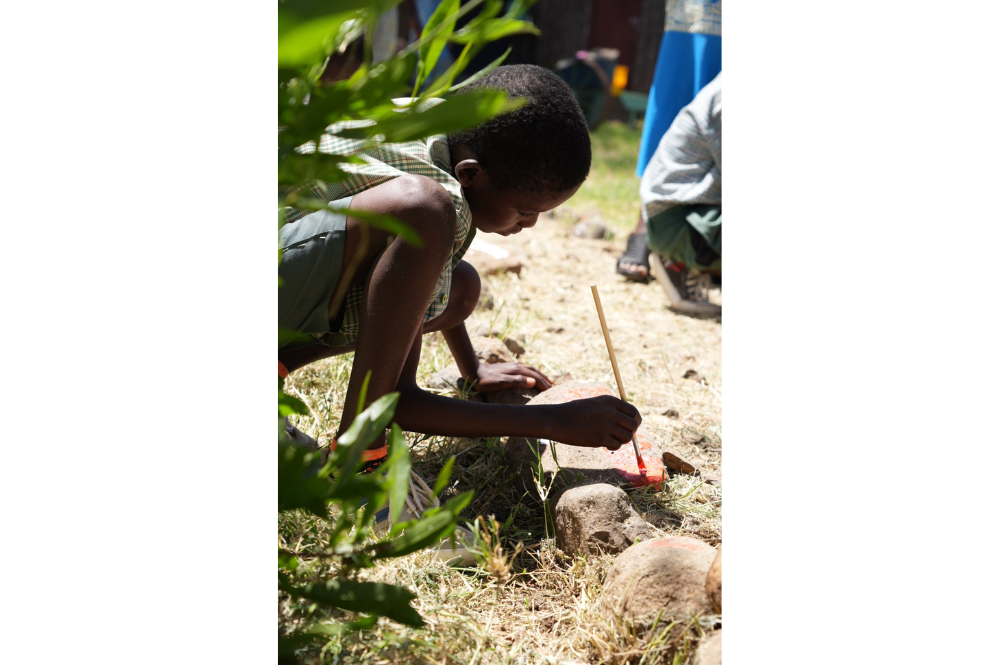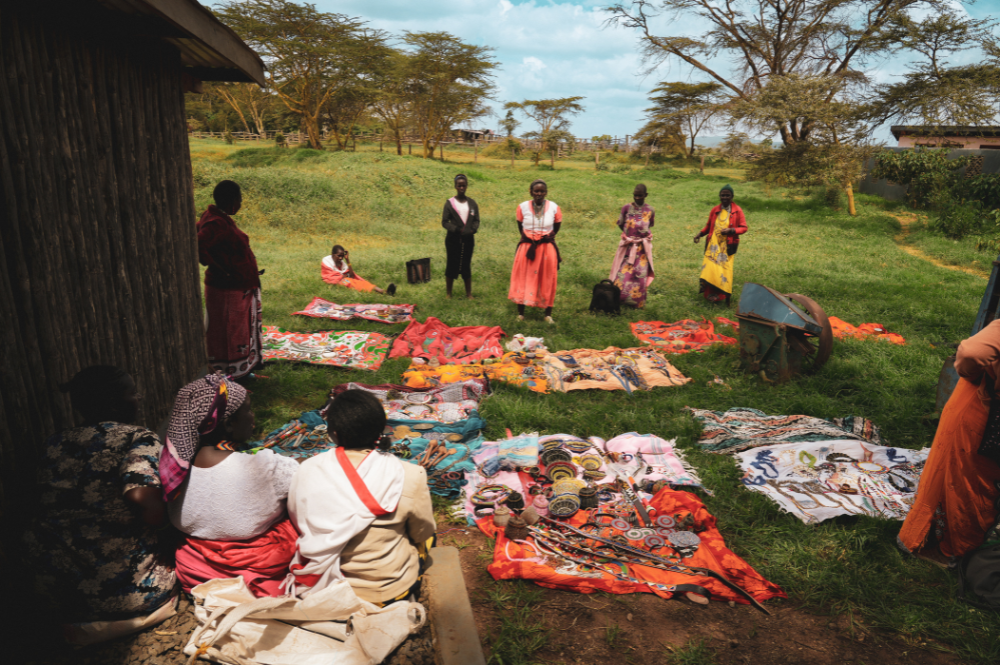

Credit: Stevie Mann
Empowering people to engage in conservation
Running a successful rhino conservancy isn’t just about protecting, monitoring and supporting rhinos. In fact, working with people is one of the most important activities.
In 2022, Borana Conservancy launched their new conservation education programme, proudly coined ‘Mazingira Yetu’ or ‘Our environment’. Aiming to deepen understanding of the about the importance of a healthy ecosystem for people, plants, and animals alike, Mazingira Yetu brings children, parents, community members and leaders into Borana.
We spoke with Stephen Gachagua, Mazingira Yetu’s Conservation Education Officer, about the importance of engaging with people local to Borana, and how he’s working to empower people through Mazingira Yetu.
To build knowledge and positive attitudes about our shared ecosystem, one approach is to invest in community conservation outreach that links to specific conservation outcomes. This type of outreach plays a vital role in fostering environmental stewardship and sustainable practices at a grassroots level. It involves actively engaging with the people living in nearby communities, empowering individuals to become active participants in conservation efforts. In turn, community-outreach initiatives help to create a sense of ownership and responsibility towards the environment.
A key aspect of community conservation outreach is raising awareness about the importance of biodiversity, ecosystem services and the impacts of human activities on the environment. Through outreach educational programmes, workshops, and interactive events, community members gain knowledge about conservation principles and the need for sustainable practices. This awareness helps individuals make informed decisions and adopt behaviours that minimise their ecological footprint.
Moreover, community outreach programmes foster a sense of connection and belonging to the environment. By organising nature walks, local dialogues and education activities in schools, participants can develop first-hand an understanding of their local ecosystem’s value and vulnerability. Bringing these experiential learning opportunities into our strategy for the Mazingira Yetu Education Programme has, so far, helped us engage more deeply with learners, cultivating a strong appreciation for the environment and motivating individuals to protect it.
Engaging communities in conservation efforts also involves collaborative problem-solving and decision-making. By facilitating and encouraging community dialogues, participatory workshops, and partnerships with local organisations, we can empower individuals to contribute their knowledge, perspectives, and traditional wisdom towards conservation initiatives. This inclusive approach ensures that local communities are actively involved in shaping and implementing sustainable solutions that are culturally appropriate and effective.
In conclusion, community conservation outreach is a powerful and necessary tool for engaging and empowering local communities in environmental stewardship. By raising awareness, fostering a sense of connection, facilitating collaboration and offering skills-development opportunities, programmes can create a foundation for sustainable practices and the protection of natural resources.
Ultimately, these initiatives help build resilient communities that value and actively contribute to the conservation of our shared environment. At Mazingira Yetu, this is what we aim to do.




